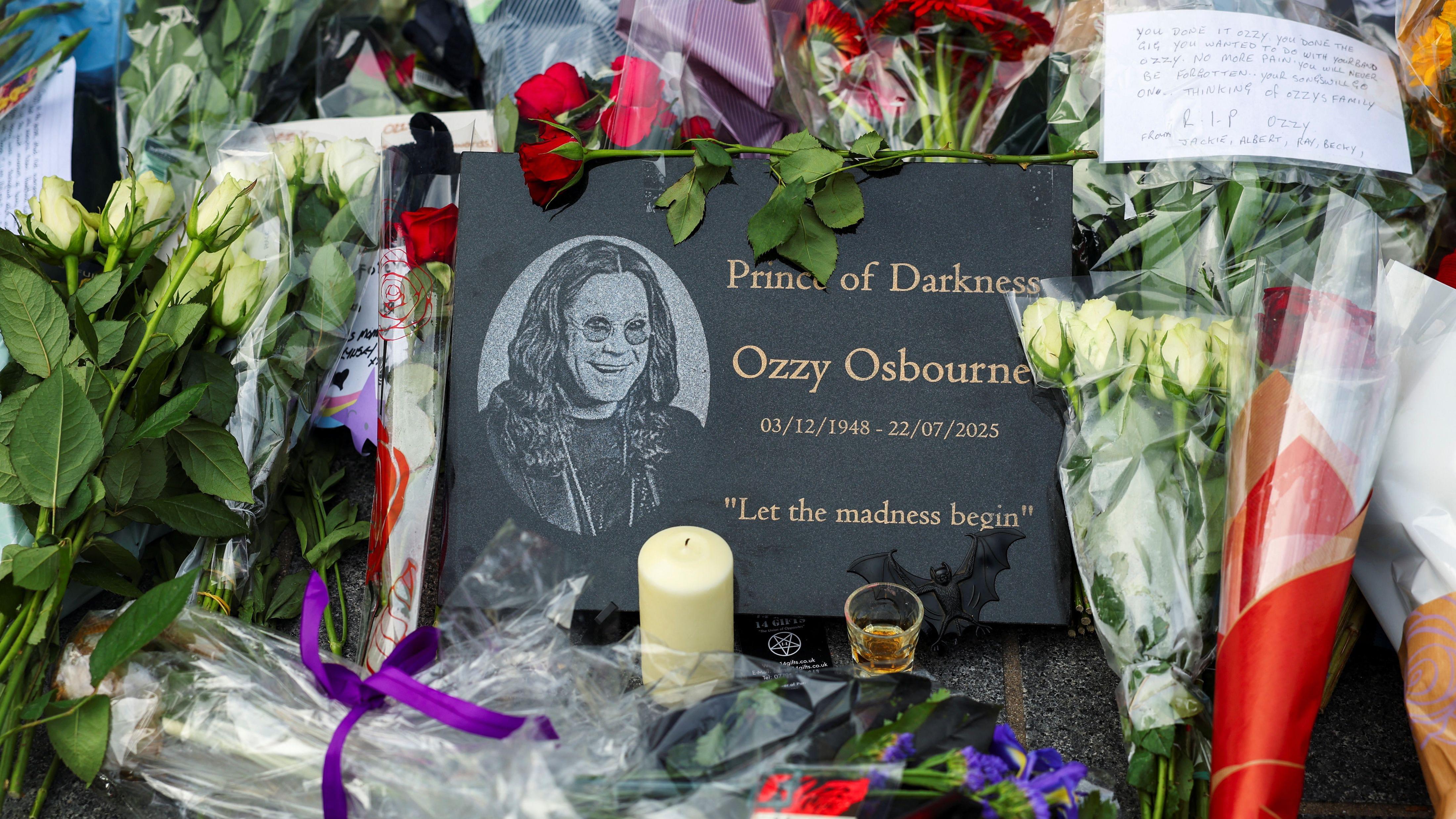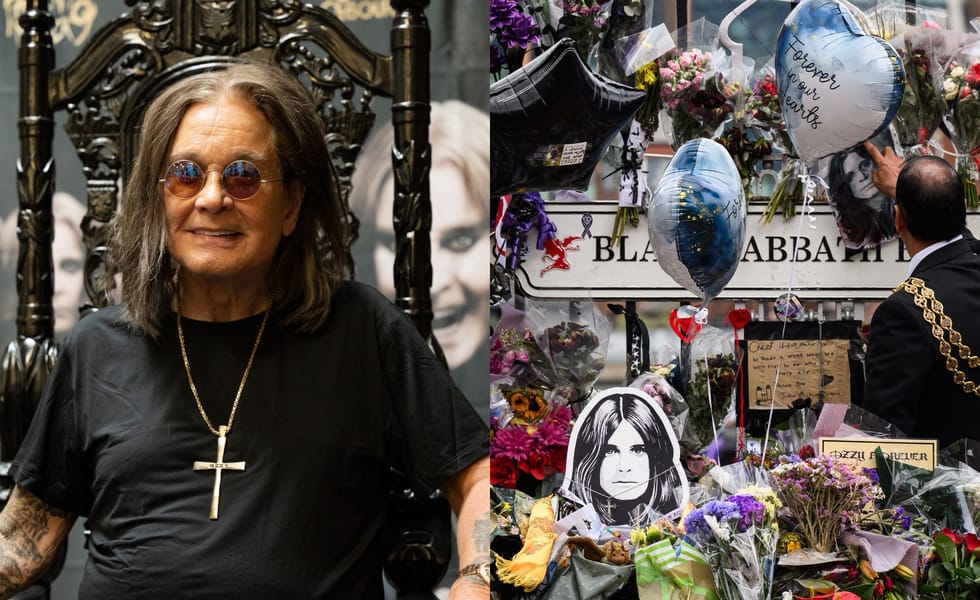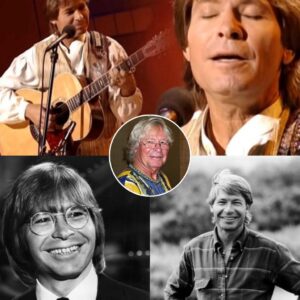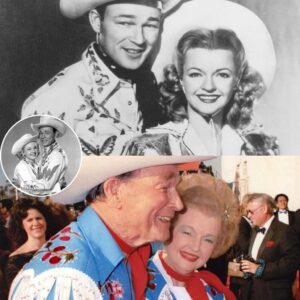Tears by the Lake: Sharon and Jack Osbourne’s Private Farewell to Ozzy at His Buckinghamshire Estate 


In the serene lakeside garden of Ozzy Osbourne’s Buckinghamshire estate, a place that once echoed with the rock icon’s laughter and chaos, the Prince of Darkness has now found his eternal rest. The site is marked by a massive floral display that spells out in unapologetic capital letters: “Ozzy Fucking Osbourne.” It is brash, defiant, and unmistakably him — a final flourish that could only belong to the man who changed rock music forever.

But on this quiet day, there was no roar of guitars, no screaming fans. Instead, there was silence, broken only by the sound of wind across the lake and the whispers of a grieving family.
Sharon Osbourne, his wife of more than four decades, walked slowly to the headstone. Dressed in black, her hand trembled as she reached out to touch the cold stone. For a moment, she closed her eyes as though to steady herself, and then, with a voice barely audible, she whispered six words that carried the weight of a lifetime: “You will always be with me.”
Those gathered close enough to hear later said it was a declaration both fragile and fierce — a vow that though Ozzy was gone, his presence would never leave her side. For Sharon, who had guided him through storms of fame, addiction, illness, and love, the words were as much a promise to herself as they were to him.
Standing nearby was their son, Jack Osbourne, his expression a mirror of loss and devotion. In his hands, he held one of his father’s old guitars — worn, familiar, and heavy with memory. Jack had brought it not just as a symbol, but as a voice. Slowly, he sat down, strummed the first hesitant chords, and began to sing.

The song was one he had written himself, a personal piece never shared until now. His voice cracked as he confessed before the gathered mourners: “When you were alive, I didn’t have much chance to be with you… now I sing to you.”
The admission cut through the still air like a blade — raw, honest, and devastating. Some wept openly. Others stood frozen, unable to hold back their emotions as Jack’s words settled over the garden like falling ash.
The guitar’s gentle melody, carried by the breeze, seemed to blend with the natural sounds of the lake. It wasn’t loud or showy — it didn’t need to be. Every note was a conversation between a son and a father who could no longer answer. It was as if the very wind carried the song to Ozzy himself, wherever his spirit might be.
Sharon, still by the headstone, lowered her face into her hands as tears streamed down her cheeks. For her, the music was both heartbreaking and healing — a reminder of everything Ozzy had meant to their family, and of the quiet spaces that love sometimes leaves behind.
Observers said the scene was “unlike any funeral or memorial they had ever witnessed.” It was intimate, almost unbearably so, yet it felt larger than life — just like Ozzy himself. There were no cameras, no stages, no pyrotechnics. Just family, grief, and music.
And in that moment, it became clear: this was not simply a goodbye. It was an act of reclamation. A son giving back to his father the love and presence he wished he’d given while Ozzy was alive. A wife whispering a vow that death could not break.
The echo of the chords lingered long after the last note faded, as if hanging in the air over the water. For those present, it was unforgettable — not the end of Ozzy Osbourne, but the beginning of his legacy’s quiet eternity, rooted in family and memory.





